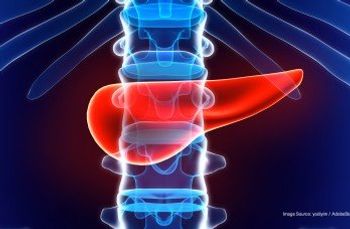
Proteomic Mucin Profiling Identified Pancreatic Cancer Precursor Lesions
Proteomic cyst fluid mucin profiling may serve as an accurate diagnostic tool for the identification of pancreatic cancer precursor lesions, according to the results of a recently published study.
Proteomic cyst fluid mucin profiling may serve as an accurate diagnostic tool for the identification of pancreatic cancer precursor lesions, according to the results of a recently published study. The profiling was able to distinguish between benign, premalignant, and malignant pancreatic cystic lesions (PCLs).
According to background information in the study, PCLs have an estimated prevalence of about 10% to 24% in the elderly population and have been identified as a precursor to pancreatic disease. However, clinicians lack an accurate method to distinguish between lesions with or without potential to progress into malignant disease.
“Previous research has demonstrated aberrant expression of both membrane-bound and secreted mucins in ductal adenocarcinomas, pancreatic intraepithelial neoplasia, intraductal papillary mucinous neoplasms, and mucinous cystic neoplasms,” the researchers wrote. “Most of these studies have used immunohistochemistry. However, antibody-based detection may lead to under-recognition because the heavy glycosylation of mucins masks their protein identity.”
Therefore, in this study, Karolina Sjöberg Jabbar, MD, of Sahlgrenska University Hospital, Sweden, and colleagues employed a high-throughput, proteomic approach to evaluate the potential utility of mucins as a marker for cancerous PCLs. The results were published in the Journal of the National Cancer Institute.
The study included a discovery cohort of 28 patients enrolled from May 2007 to November 2008, and a validation cohort of 50 patients enrolled from December 2008 to October 2012. All patients had presented for endoscopic ultrasound-guided aspiration of cystic lesions. The researchers analyzed cytology and cyst fluid carcinoembryonic antigen, classifying levels greater than 192 ng/mL as premalignant and levels greater than 1,000 ng/mL as malignant. Histology was used to confirm malignancy.
“In this study, we have shown that mucin profiling by a proteomic approach identified cystic forms/precursor lesions of pancreatic cancer with an accuracy of 97.5%,” the researchers wrote. The accuracy results from the validation cohort were nearly identical to those seen in the validation cohort (96.6% vs 98%).
Results showed that proteomic profiling was more accurate for identifying lesions with malignant potential than cytology (97.5% vs 71.4%; P < .001) and cyst fluid carcinoembryonic antigen (97.5% vs 78%; P < .001), the current standard diagnostic test.
Finally, the researchers found that proteomic mucin profiling had an almost 90% accuracy for identifying lesions that had malignant transformation. Again, this level of accuracy was significantly higher than that seen with cytology (51.7%) and carcinoembryonic antigen (57.1%).
“Mucin profiling, as described here, appears well suited for clinical use,” the researchers wrote. “Importantly, results could be obtained for lesions smaller than 1 cm and delivered within a working week.”
Newsletter
Stay up to date on recent advances in the multidisciplinary approach to cancer.












































